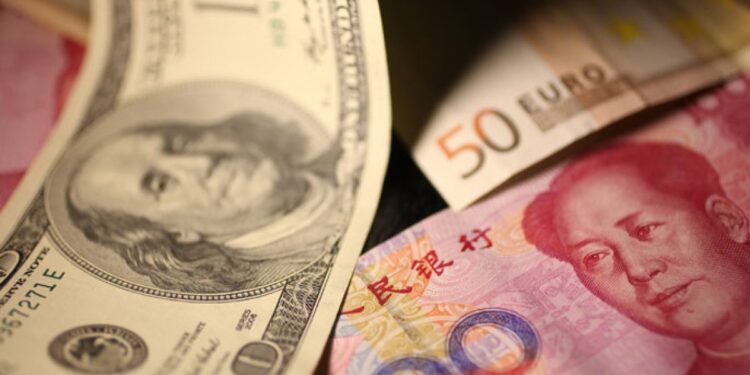The global financial landscape has undergone a quiet but significant transformation, and at the heart of this change lies the concept of “de-dollarization,” a concept that refers to the gradual reduction of the dollar’s dominance in international trade and finance.
Although this process has been slowly building over the years, it has recently accelerated, driven by China’s increasing reliance on its yuan (or renminbi) currency for cross-border transactions, according to a recent report by OilPrice.
China moves away from the dollar
Oil Price says that China, like many countries, has historically relied heavily on the dollar in its international trade.
The platform notes that in 2010, less than 1% of cross-border payments in China were settled in yuan, while 83% were in dollars.
Over time – specifically in March 2023 – the yuan surpassed the dollar for the first time in Chinese trade settlements, and by March 2024, the percentage of Chinese payments made in yuan exceeded 52.9%, which represents a significant increase in just 5 years, according to Oil Price.
This shift can be attributed to several factors, according to the platform, including a growing desire among foreign companies to trade in yuan to reduce their exposure to the dollar.
Countries such as Brazil and Argentina have also started accepting the yuan for trade, the platform said, boosting its international use.
The Chinese government and China’s central bank (the People’s Bank of China) have played a pivotal role in this shift, implementing policies to facilitate the use of the yuan in cross-border trade and investment.
Strategic challenges and transformations
Despite the yuan’s rise, the journey to shed the dollar’s dominance was not without obstacles. In 2015 and 2016, China faced organized speculation on its currency, forcing the People’s Bank of China to intervene to support the yuan’s stability.
This crisis has led to a re-evaluation of China’s strategy to eliminate the dollar’s dominance, as it has shifted from aggressive expansion to a more cautious approach, according to Oil Price.
The government has prioritized yuan trade settlement systems and tightened capital controls to prevent excessive outflows, which has better protected the economy than before but also slowed the yuan’s globalization.
Global Impact and Future Aspirations
Although the trend of eliminating the dollar’s dominance is gradual, it has major repercussions on the global financial system, according to the Oil Price platform.
A less dollar-dependent world could lead to a redistribution of economic power and influence, yet despite the yuan’s growth, the dollar remains the dominant currency in the foreign exchange market, accounting for 88.5% of all foreign exchange transactions in 2022.
However, the yuan, with a 7% share, is the fastest growing currency in the foreign exchange market, indicating its growing acceptance, especially in trade with China.
The platform says that while a complete elimination of the dollar’s dominance seems unlikely anytime soon, the rise of the yuan represents a fundamental shift in global finance.
China’s ongoing efforts to promote the use of the yuan in international transactions and build the necessary infrastructure indicate that the yuan will play an increasing role in global trade and finance.
However, challenges such as strict capital controls and concerns about the yuan’s long-term stability remain.



